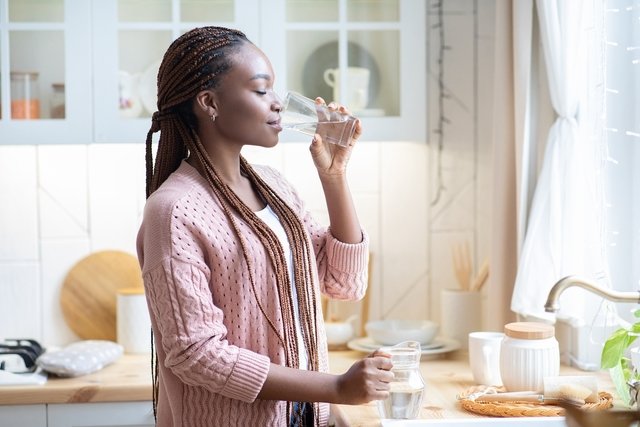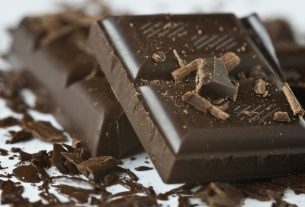Some tips, such as doing Kegel exercises, maintaining an adequate weight and stopping smoking, strengthen and prevent overload of the pelvic muscles, for example, helping to control urinary incontinence.
Urinary incontinence is the involuntary loss of urine, which can be caused by situations such as obesity, pregnancy or chronic cough, for example, and which can happen in both men and women. Understand more about urinary incontinence.
Tips for controlling urinary incontinence should preferably be done under the supervision of a gynecologist, in the case of women, or a urologist, for men. This is because in some cases, it may also be necessary to use medication or even surgery.

Top tips for urinary incontinence
See below the 7 main tips for controlling urinary incontinence:
1. Do Kegel exercises
Kegel exercises help to strengthen the muscles in the pelvic region, which support the bladder, urethra and intestine, and are recommended for men and women.
To do Kegel exercises, simply follow these steps:
- Empty the bladder;
- Identify the pelvic floor muscles, which can be done by stopping urine mid-flow or squeezing the muscles of the anus, as if preventing the passage of gas;
- Tighten your pelvic floor muscles, holding the contraction for 3 seconds and then relaxing for 3 seconds;
- Perform 10 contractions and relaxations followed by the pelvic floor muscle;
- Resume exercise, doing at least 8 to 10 sets of 10 contractions/relaxation every day.
Kegel exercises can be done in any position, although at first it is easier to do them lying down. During these exercises it is important to avoid contracting the muscles in your abdomen, thighs or buttocks. Understand better about Kegel exercises.
2. Avoid foods with caffeine
It is important to avoid caffeine, a substance present in foods such as coffee, energy drinks, green tea and chocolate, because caffeine irritates the bladder and stimulates urine production, worsening urinary incontinence. See other foods with caffeine.
A good tip to avoid consuming caffeine is to consume decaffeinated coffee or replace these foods with water, fruit or herbal teas.
3. Drink plenty of water
Drinking plenty of water will prevent bladder problems, dehydration or urinary tract infections. Therefore, it is recommended to drink at least 8 glasses of water throughout the day. Know the amount of water recommended for each person.
Furthermore, drinking plenty of water is also important to hydrate feces, facilitating their elimination and preventing constipation, a condition that worsens urinary incontinence by increasing pressure in the pelvic region and bladder.
To prevent urine leakage during sleep, you can drink more water throughout the day and reduce its consumption at night, for example.
4. Quit smoking
It is important to stop smoking because smoking often causes chronic coughs that strain the pelvic floor muscle, making urinary incontinence worse. Discover some tips for stopping smoking.
Furthermore, tobacco components such as nicotine and carbon monoxide cause a deficiency of estrogen, the hormone responsible for nutrition and blood circulation in the pelvic floor muscles, and can therefore cause urinary incontinence in women.
5. Avoid citrus and spicy foods
Citrus and spicy foods should be avoided, as they can irritate the urinary tract, causing the bladder to contract and thus causing involuntary loss of urine. These foods include peppers, curry, paprika, orange, lemon, pineapple, kiwi, acerola and passion fruit, for example.
6. Maintain ideal weight
Maintaining an ideal weight is important for better bladder control, because excess abdominal fat increases pressure on the pelvic floor muscle, worsening urinary incontinence.
If you want to know your ideal weight, enter your data into our calculator below:
7. Avoid alcoholic beverages
Avoiding the consumption of alcoholic beverages helps control the symptoms of urinary incontinence, because these drinks are diuretics and stimulate excessive urine production. Therefore, it is important to avoid drinks such as beer, sparkling wine, wine, whiskey and vodka, for example.
See nutritionist Tatiana Zanin for other tips for controlling urinary incontinence:
Bibliography
- THE AMERICAN COLLEGE OF OBSTETRICIANS AND GYNECOLOGISTS. From Leaking Urine to Sudden Urges to Go: An Ob-Gyn Talks Bladder Control Problems. Disponível em: <https://www.acog.org/womens-health/experts-and-stories/the-latest/from-leaking-urine-to-sudden-urges-to-go-an-ob-gyn-talks-bladder-control-problems>. Acesso em 04 nov 2022
- HEALTH DIRECT AUSTRALIA. Urinary incontinence. Available at: <https://www.healthdirect.gov.au/urinary-incontinence#tips>. Accessed on Nov 4, 2022
- NATIONAL HEALTH SERVICE- NHS. 10 ways to stop leaks – Urinary incontinence. Disponível em: <https://www.nhs.uk/conditions/urinary-incontinence/10-ways-to-stop-leaks/>. Acesso em 04 nov 2022
- OFFICE OF WOMEN´S HEALTH. A-Z health topics: Urinary incontinence. Available at: <https://www.womenshealth.gov/az-topics/urinary-incontinence>. Accessed on Nov 4, 2022
- HUANG, Y. C.; CHANG, K. V. IN: STATPEARLS (INTERNET). TREASURE ISLAND (FL): STATPEARLS PUBLISHING. Kegel Exercises. 2022. Available at: <https://www.ncbi.nlm.nih.gov/books/NBK555898/>. Accessed on Nov 4, 2022
- MAYO CLININC. Kegel exercises for men: Understand the benefits. Disponível em: <https://www.mayoclinic.org/healthy-lifestyle/mens-health/in-depth/kegel-exercises-for-men/art-20045074#:~:text=Tighten%20your%20pelvic%20floor%20muscles,Maintain%20your%20focus>. Acesso em 04 nov 2022




